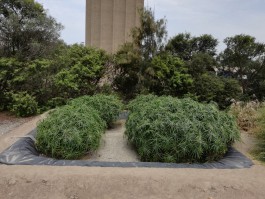
About 80% of all global wastewater is released untreated into the environment, which leads to a deterioration in water quality. Objectives 6.2 and 6.3 of the Sustainable Development Goals (SDGs) aim to provide universal access to sanitation while improving water quality by halving the proportion of untreated wastewater and increasing its safe reuse.
Constructed Wetlands (CWs), a nature-based solution (NbS), can contribute to these goals. There is currently little knowledge about the contribution of CWs to the global amount of treated wastewater. That’s why the researchers Prof. Jutta Papenbrock and Dr. Ariel Turcios from the Institute of Botany, Leibniz University Hannover (LUH) in collaboration with the l3S research center have created a central online platform for constructed wetlands worldwide called CWetlands – the Constructed Wetlands Knowledge Platform, and further developed with the help of the consortium.
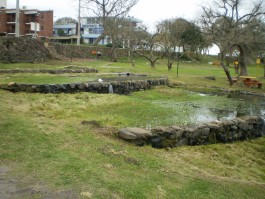
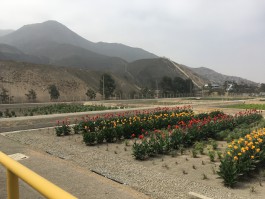

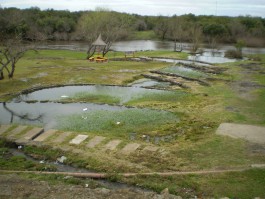
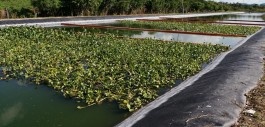
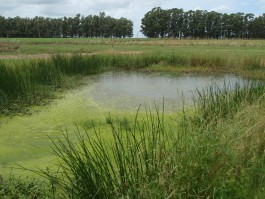
photos by Rosa María Miglio Toledo De Rodríguez & Tamara Avellán
The aim of this project is to take CWetlands to the next level, to develop one-stop solutions for CW-related data and mechanisms to support research, policy development and funding, and to empower civil society organisations (CSOs) and practitioners to implement NbS for sustainable development. This is being achieved through the following activities: First a stable, comprehensive and attractive platform to understand and apply NbS in the various stakeholder contexts has been designed. Further more high quality data is being collected through multiple channels including semi-automated extraction of information from peer-reviewed journal articles and by Citizen Science. Users may also provide their own data through an online submission mechanism. The platform development is supported by a dedicated transdisciplinary team capable of deriving critical products from CW design specifications to policy implications for the region. This project is being coordinated by the Institute of Botany, LUH.
→ CWetlands Platform
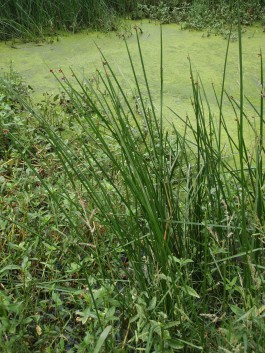
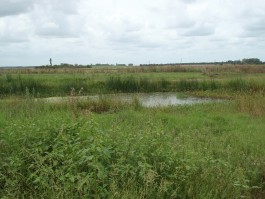
photos by Tamara Avellán
The Constructed Wetlands Knowledge Platform (CWKP), the main outcome of this project, is a holistic web tool developed with the help of stakeholders. Stakeholders include communities, wastewater producing businesses, farmers, fishermen, sellers of agricultural products, cooperatives, consumers and others. The platform can thus systematically summarize information on CWs that has been compiled with great expertise and is therefore relevant for decision-making. It is planned to link this globally unique complex source of information with the ongoing monitoring and reporting efforts of SDG6 custody organizations such as UN-Habitat and WHO for SGD 6.3.1 - Wastewater Treatment.
As a by-product of the participatory character of the project, the consortium partners also expect that the benefits of NbS and the high effectiveness of CWs for sustainable wastewater treatment can be communicated more widely and knowledge-based to more actors*, thus increasing the willingness to implement such projects. The guidelines, documentation and information materials made available on CWetlands can also make a significant contribution to raising awareness of NbS and its potential, thereby contributing to a more sustainable future, especially for the people living in CELAC cities.
During the project a CWetlands Simulation has also been made, which is the online game that simulates the context of a local community facing the need to solve the problem of urban wastewater, especially from dispersed housing and other facilities and activities that are difficult and expensive to centralize. CWetlands Simulation requires players to engage in negotiations, talk and make difficult decisions regarding projects related to financial, legal, technical, social and environmental aspects of different wastewater management models (centralized or decentralized) and different technical solutions (constructed wetlands and other NBS vs. “grey” infrastructure).
CWetlands Simulation is available free of charge at engage.socialsimulations.org – the server of the Center for System Solutions, which is the creator of the game. To use the simulation, you have to log into a special moderator account, which will be provided to you free of charge. Please, contact contact@socialsimulations.org to receive your own login and password. It is also possible to play CWetlands Simulation in an offline version. Clip on CWetlands Simulation: https://www.youtube.com/watch?v=9ZgkCUmt-8o
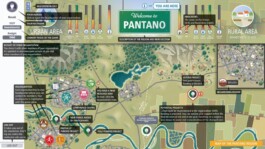
You can find more CWetlands related videos here:
Video sobre CWetlands (versión español): Werk-Tanne, Alemania
Duration of the project:
July 1st 2020 - June 30th 2023
Partner





Leibniz University Hannover, Institute of Botany, Germany, Prof. Dr. Jutta Papenbrock, Coordinator
AGH University of Science and Technology, Poland, Dr. Tomasz Bergier, Partner
University of San Carlos of Guatemala, Guatemala, Prof. Jorge Cifuentes Castillo. Partner
Universidad Nacional Agraria La Molina, Peru, Prof. Dr. Rosa María Miglio Toledo De Rodríguez, Partner
Cultura Ambiental, Uruguay, Dr. Gabriela Pignataro, Partner
Partners





Partners






Duration of the project:
July 1st 2020 - June 30th 2023